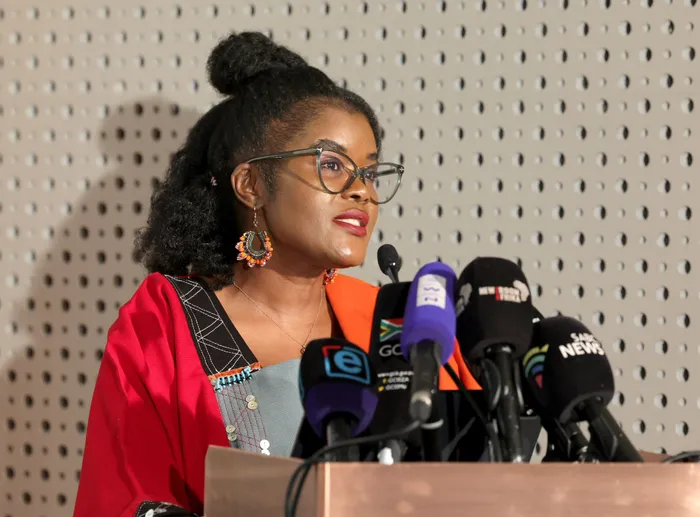SETAs shake-up sparks nepotism storm in higher education

Minister of Higher Education and Training Dr Nobuhle Nkabane.
Image: GCIS
The withdrawal of the appointment of chairmen at 21 Sector Education and Training Authorities (SETAs) has highlighted concerns of nepotism within Higher Education and Training institutions, with IOL’s online research showing that the issue isn’t limited to the current outcry.
The Minister of Higher Education and Training, Dr Nobuhle Nkabane, was lambasted by Members of the Parliamentary Committee on Higher Education following her appearance before it as she failed to explain why she had decided to readvertise appointments to replace chairmen at various SETAs.
Some members of Parliament accused her of not being transparent over her withdrawal of the appointments, and said any process needed to ensure that it was not victim to state capture or be dominated by any one political party when it came to political allegiance of those chosen for the role.
“Why are you restarting the process when there was nothing wrong to begin with… you can’t take instructions from social media… We are now going to make sure that the children of ministers and politicians are not given priority over the people of South Africa,” said one Member of Parliament, adding that Nkabane did not show that she was a listening Minister.
Some of the chairmen reportedly included several individuals linked to the ANC. Meanwhile, a quick online search of some employees at BankSETA, for example, shows that the current CEO, Eubert Mashabane, has previously worked with some staff in his office at the National Skills Fund.
During the committee meeting, Nkabane was accused of not listening to the Members of Parliament, telling them that the process wasn’t flawed, which no-one would believe, that she had taken instructions from social media, as well as not having provided a report as to why withdrawn letters of appointment, need to understand why withdrawn because of public outcry. She wasn’t addressing concerns.
During a four-hour session, the Minister argued that the appointment selection process had been beyond reproach. Nkabane said “there was no way I said the process was flawed” and said she had made the withdrawals because of an “outcry of our citizens”. She said the overarching issue was that of demographics.
The South African Federation of Trade Unions argued that her withdrawal of appointments was a “direct response to public outrage, trade union mobilisation, and sustained media exposure of a process tainted by political patronage, cadre deployment, and a breakdown of democratic governance”.
The Portfolio Committee on Higher Education was dismayed at the Nkabane defence of the decision to appoint board chairpersons to the Sector Education and Training Authorities claiming the process was beyond reproach, a press release issued by the committee stated.
The committee said it was frustrated that the meeting could not have an honest discussion on the real reasons for the withdrawal of SETA board members and that the Minister was defensive and unwilling to disclose the process followed.
Committee Chairperson, Tebogo Letsie, said, “let’s be clear, the process was not beyond reproach, and to suggest otherwise is misleading. The Minister’s unwillingness to disclose how these appointments were made, despite the high level of public concern, points directly to a serious breakdown in the system. You simply cannot reverse an appointment and still insist that the process was flawless.”
This followed a mid-May statement in which Letsie welcomed the decision to withdraw the appointments. At the time, the committee called on Nkabane to “account for the composition and credibility of the panel tasked with making these recommendations”.
The boards were meant to be fully capacitated by April to start working.
IOL
Related Topics: